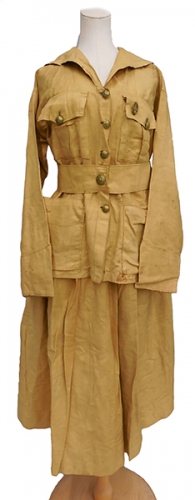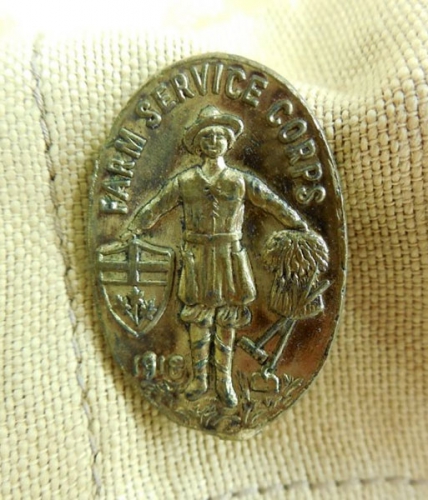Jeanette Elliott, Collections Co-ordinator, Fanshawe Pioneer Village, London

This Farm Service Corps uniform is part of the permanent collection at Fanshawe Pioneer Village, and serves to remind us that men were not the only participants in World War One. While women were restricted from participating in direct combatant roles, they organized and outfitted themselves for home defense, including military drills and rifle training. Canadian women also played a vital role on the home front, ensuring the economy continued to thrive by assuming roles traditionally held by men. According to the Imperial Munitions Board, nearly 35,000 women produced ammunition in factories in Ontario and Quebec during the First World War. But the shortage of labour in rural Canada led to government and private sector support for employment of women in agriculture.
One such program, the Farm Service Corps, was an initiative of the Ontario government. The “Farmerettes” worked in many areas of agriculture, replacing the labour of men lost to military service. For example, 2,400 women assisted with the fruit harvest in the Niagara region in 1918. The Young Women’s Christian Association, or YWCA, also had farm work programs, as did some charitable agencies and provincial departments of public works. While there were no formal arrangements like this in other provinces, rural women contributed extensively to farm work, as they had before the war, but now they often did so without their husbands, sons, or labourers to assist. Despite these challenges, it was this type of exhausting, and often lonely labour that helped Canada to supply its troops with war-winning material and food.
This story's themes
Photo Gallery
-

Credit: Fanshawe Pioneer Village CollectionFarm Service Corps badge
Most viewed themes

